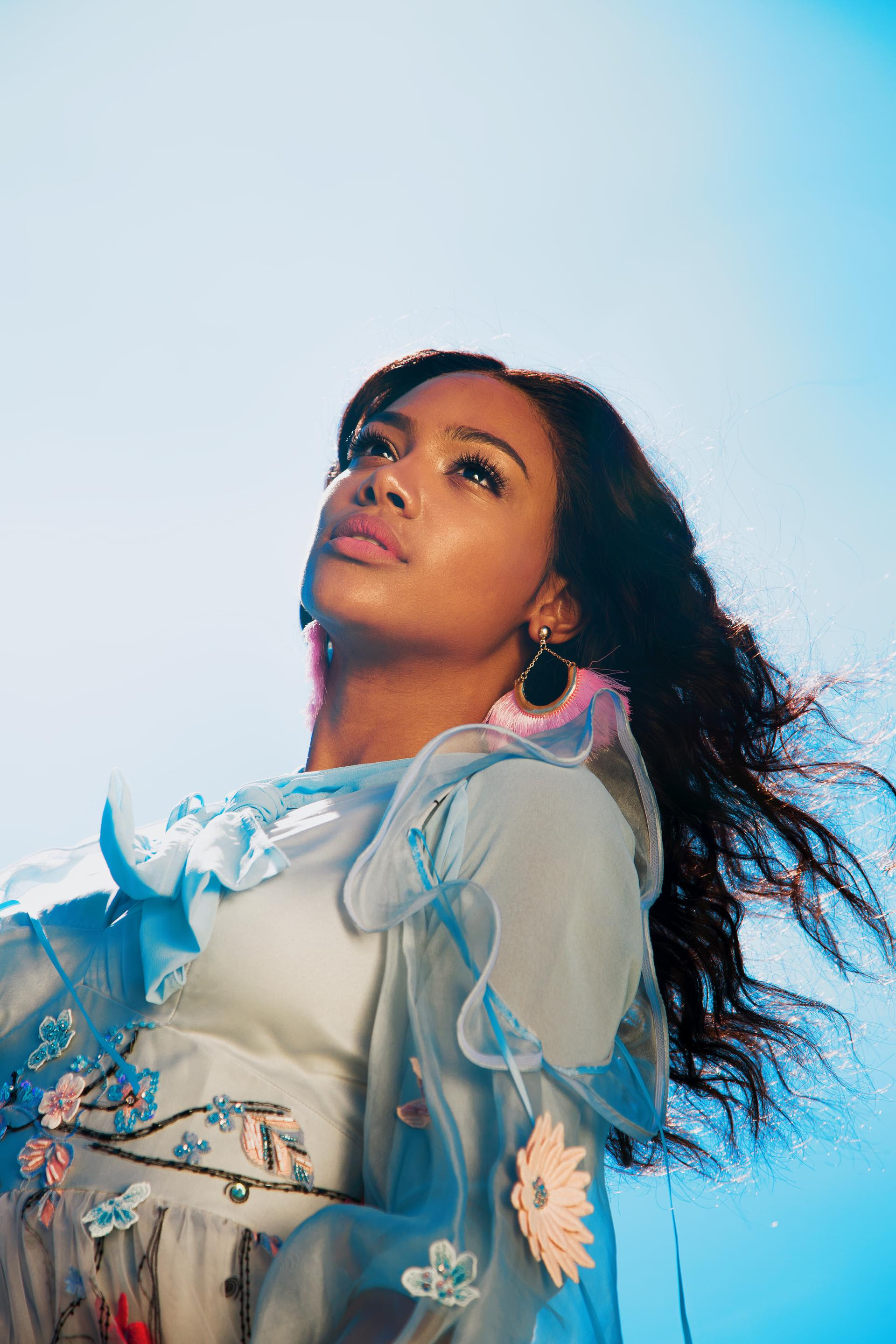
Source: Courtesy of Jordan Emanuel / Courtesy of Jordan Emanuel
I think it’s safe to say that most Black women care about their hair. But when you literally make money off of your physical image, then the beauty attached to our hair becomes even more important.
September is Alopecia Awareness month, so we spoke model and journalist Jordan Emanuel opened up about her journey. See what she had to say.
MadameNoire: How did you first discover that you had alopecia? What were the first signs you noticed?
Jordan Emanuel: It was my sophomore, junior year in college. I had just gotten a relaxer, like I normally did. Every six to eight weeks. But this time, I noticed a small circle forming at the base of my hairline. So, I went back to my hairstylist and was like, ‘Something’s going on.’ And she said, ‘Oh my gosh, I think you might have alopecia.’
And the stress of that only exacerbated the situation. And at that time, it really wasn’t that bad looking back on it. But for the next six months, I wore wigs to cover that up. Then it grew back and I never had an issue until about two years ago.
MN: Is your form of alopecia, traction alopecia? Is it brought on by stress? Is it genetic?
JE: I have alopecia areata, it’s genetic. I’ve always had it. However, it is brought on by stress or typically it has been triggered by a chemical or something physical.
ME: How were you diagnosed?
JE: This last round, because it was so extreme, I did go to my dermatologist where I was formally diagnosed. At the same time this was happening, my dad’s sister was experiencing vitiligo. And we didn’t know at the time but they’re linked, actually.
It’s attack of the healthy skin pigmentation cell or hair follicle.
And then we found out last year, my grandmother’s sister as alopecia too. We just didn’t know because her medication had a steroid in it that helped maintain her hair.
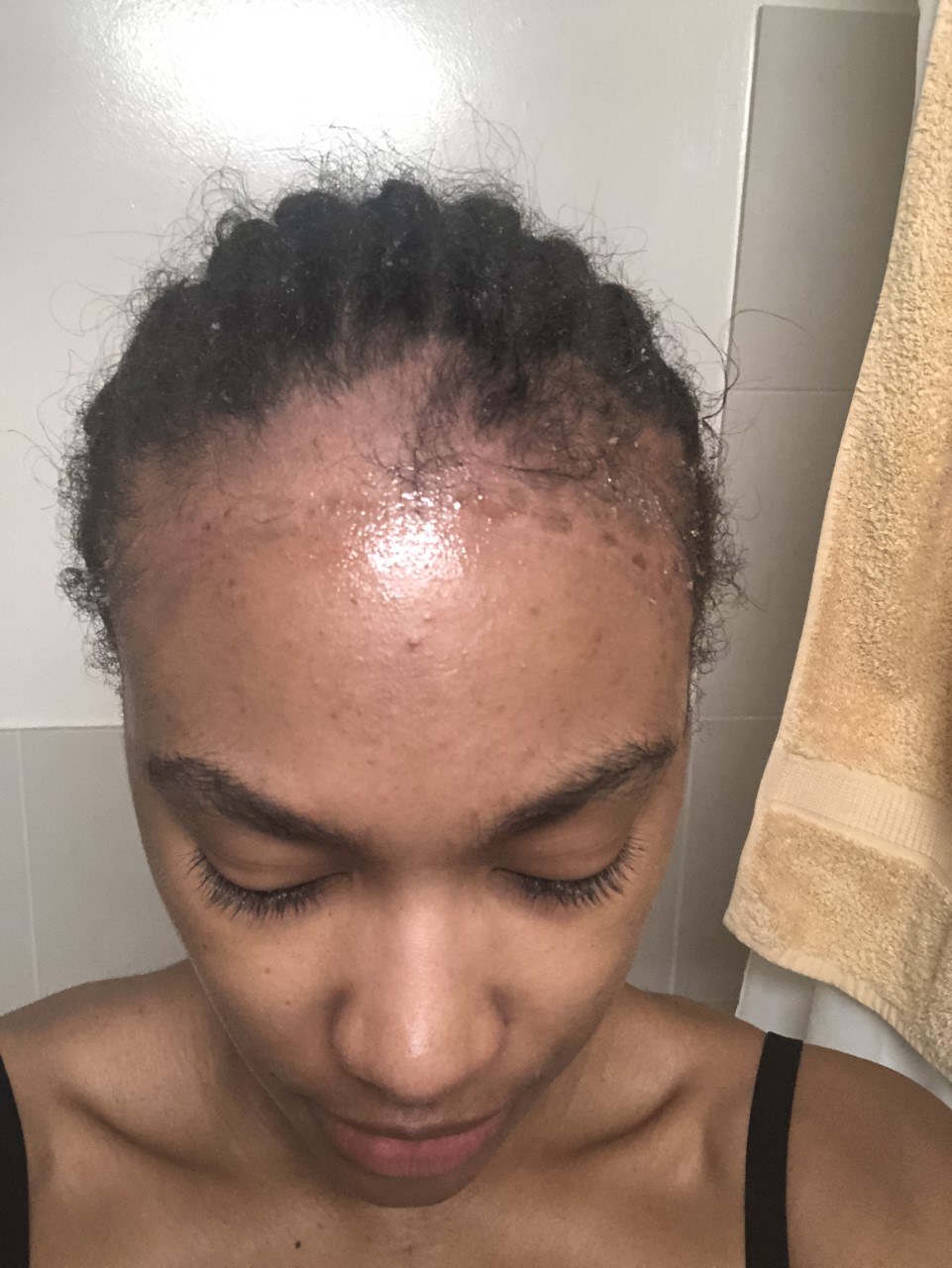
Source: Courtesy of Jordan Emanuel / Courtesy of Jordan Emanuel
MN: As a Black woman and as someone who makes a living off of your image, how were you feeling when you got the official diagnosis?
JE: It was tough. Especially because here I was Playboy’s Playmate of the Year and I’m representing this strong, beautiful group of women and really I’m at home praying that my hair comes back. All I could say was, ‘I would feel so much better if I just had my hair line.’
Growing up, I was never someone who wore wigs and weaves. I had my natural hair. And I like a natural hair. I’m not with the baby hair. I’m very like, this is what my hair is. Boom.
So not having that option, I hated that. And I really struggled with that. And the more I struggled with it and the more I was trying to frantically find what would work for me, I made it worse, quite frankly. All the glues and all the shenanigans, it really took out the entire hairline. It was bad.
Then I would start to progress. I’d take the steroid shots every month. I’d see some progress. Then I’d think, I’ll wear my hair out. I’ll just part it a certain way. But I look back and I’m like, ‘Girl, you look crazy.’
But I would not want to take the shots. They’re painful. Then the whole process would start over again. I’d start losing hair.
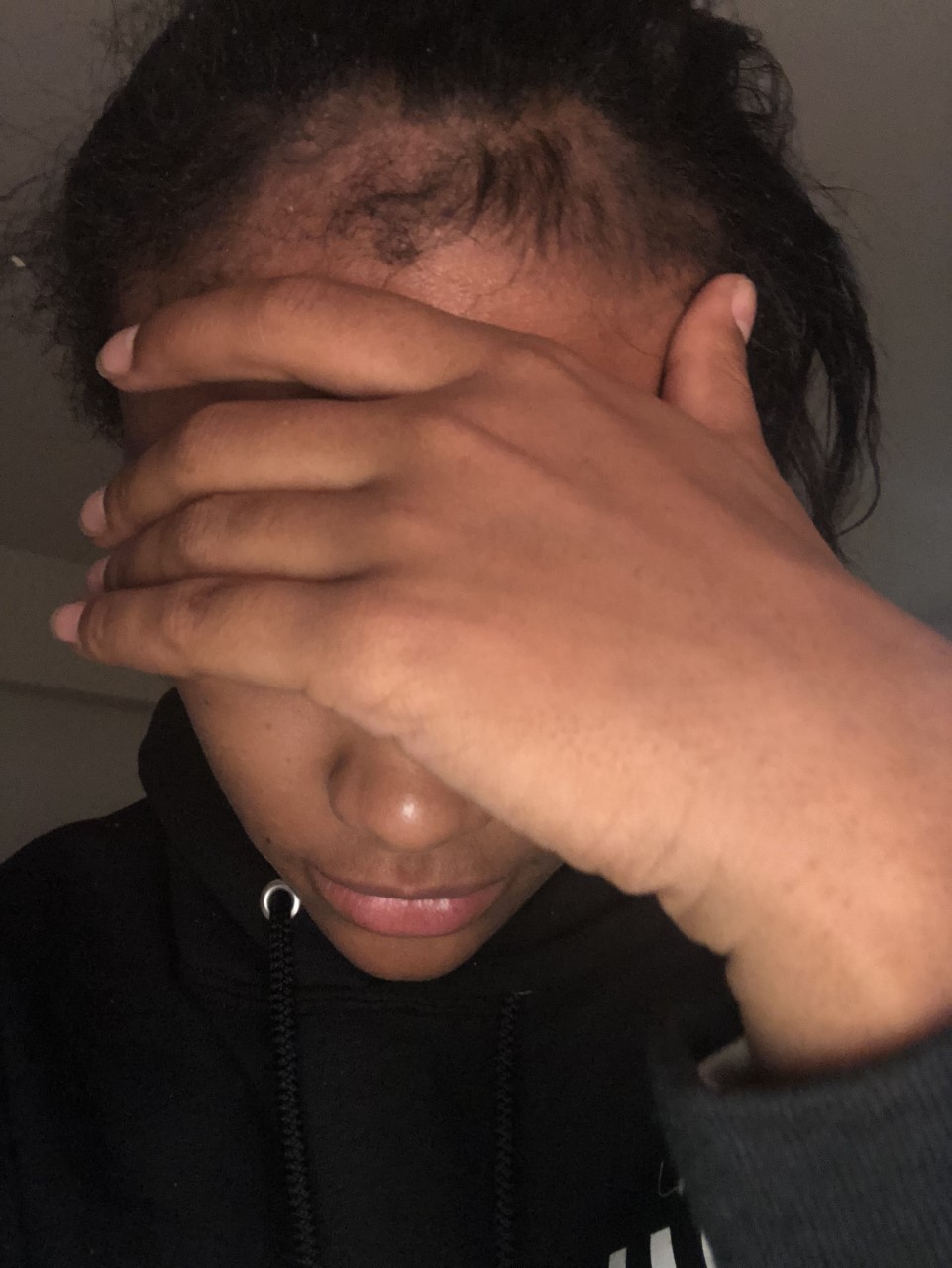
Source: Courtesy of Jordan Emanuel / Courtesy of Jordan Emanuel
Finally, last year, I did my last round of shots and I maintained my hair. I got little, baby bangs. But it was a major struggle. And I was at the point where I was so fed up that I was ready to shave my head.
With the help of her dermatologist, Jordan received five steroid shots over the course of a year and a half.
MN: Aside from the steroid shots, what else were you doing?
JE: Personally, I wanted to find a way to calm myself. I’m a person who suffers from anxiety in general. I’m very worrisome and nervous on a normal day so it was really about trying to find outlets to meditate and cope with my feelings and journaling. Just finding that calmness within myself. I visited Namaste Bookstore, read uplifting books, watching comedy shows. Making sure I had a deep, hearty laugh every day. As silly as that sounds, it’s really important to alleviate your mood.
In terms of hair stuff, I tried castor oil, coconut oil, all these little avocado, egg and mayonnaise potions. And I also started using a serum called The Ordinary’s Hair Density serum. That made a major difference, especially when I wasn’t able to visit my dermatologist at the beginning of COVID.
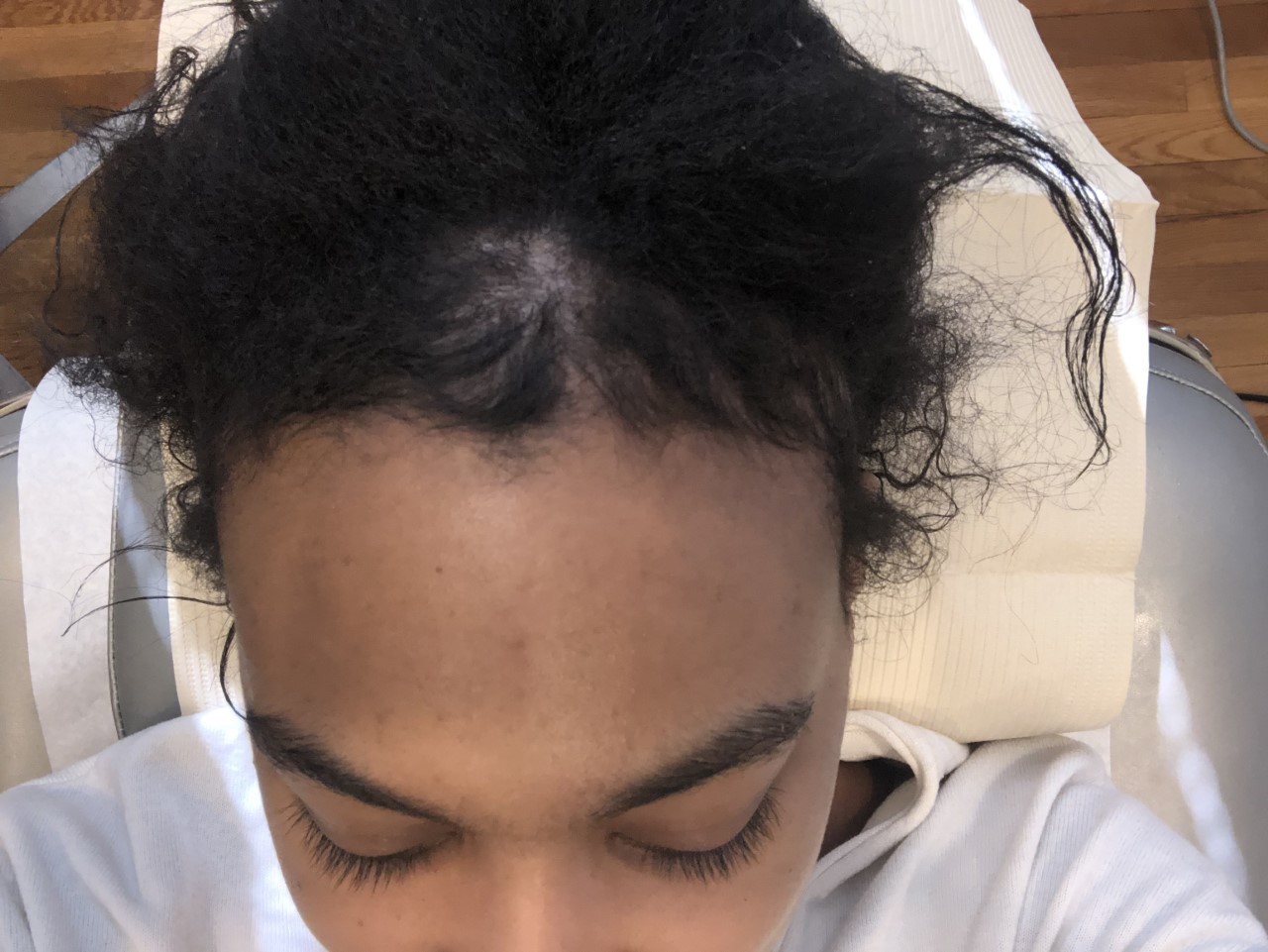
Source: Courtesy of Jordan Emanuel / Courtesy of Jordan Emanuel
MN: What would you say you learned about yourself during that time?
JE: I guess I really learned about my resilience. I also learned how important hair is to me but I also learned how deeply embedded it is in Black women’s day to day beauty. And when I lost that, I didn’t understand why it was hitting me as deep as it was.
From one standpoint, it’s like it’s just hair. But it was really something that was subconsciously in my brain as like, ‘Oh I had good hair’ or I always had ‘full, long hair.’ So that was interesting to learn culturally.
I learned about my patience and how I move in times of struggle.
MN: What do you think about the notion of balancing the cultural pride we have in our hair but also not putting so much of our self-worth in it?
JE: It was a lesson to really, really be comfortable and appreciate and have gratitude for who you are as a human being. I say that from an internal aspect. How you look is great. Your aesthetic is great. How you’re presented is great. But really what matters is your morals, how you treat people, how you treat yourself.
And I had to sit with myself. If I were speaking to my friend, I wouldn’t even notice what was going on with her hair. That would not be what was shining through.
I have a friend who has alopecia totalis. Her whole body has no hair. And I’ve known her for fifteen years. I knew when she had long, beautiful hair. And seeing her through that transition, I never said to her, ‘Girl, you need to go get that wig.’ That was never something I would say to somebody else.
So I had to say to myself, that’s actually not what matters.
I’m nitpicking these things because of the industry I’m in. But in reality, there’s strength and there’s beauty in the interior that you’re letting people see. And I think that’s why I felt it was important to publicly say what it was I had been going through.
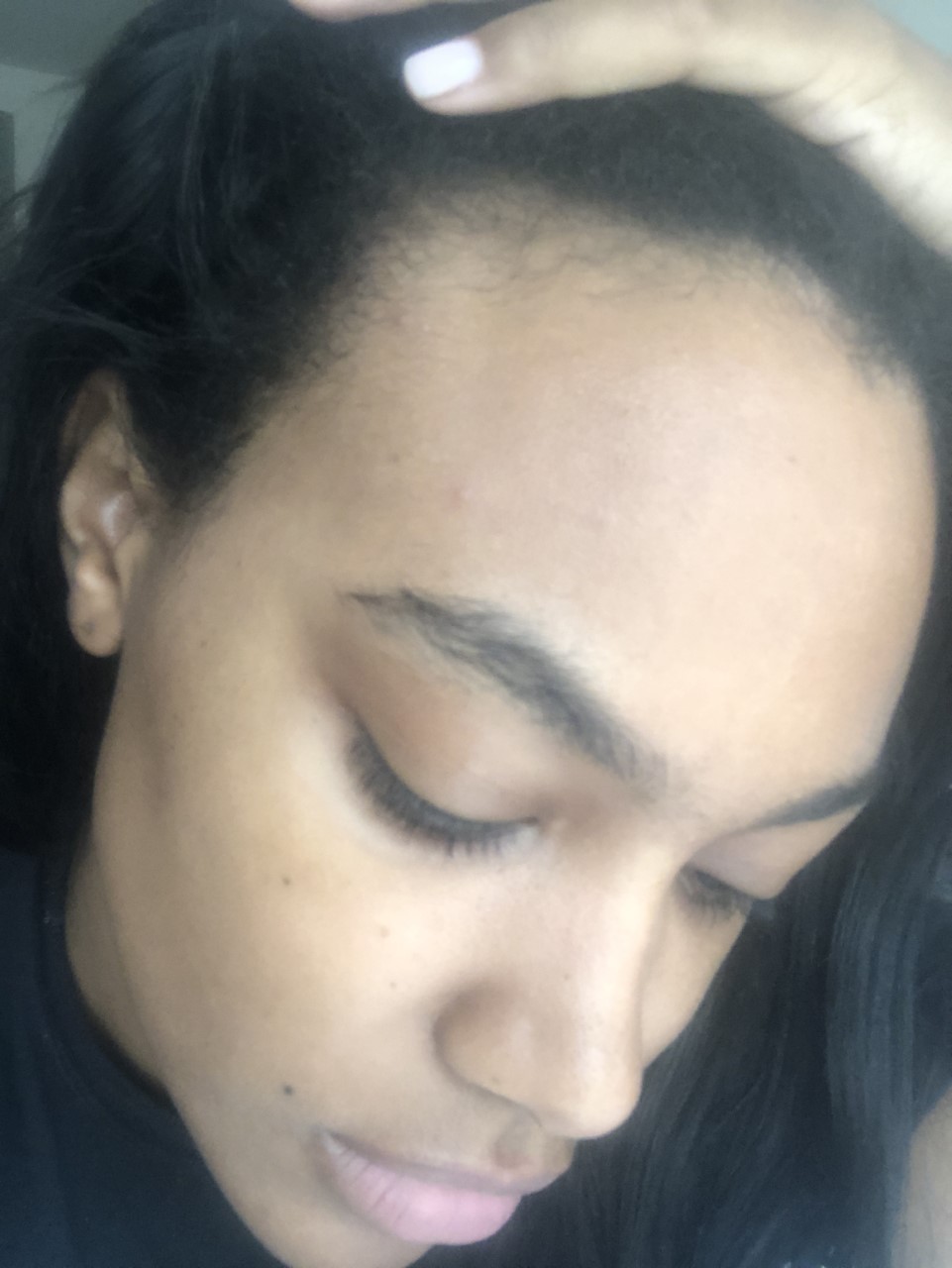
Source: Courtesy of Jordan Emanuel / Courtesy of Jordan Emanuel
MN: So going forward how do you take care of your hair to make sure you’re not doing anything to trigger your alopecia?
JE: I’ve always been really low maintenance with my hair. I let my stylist handle what she needs to handle because that’s where she thrives and I do not. It’s about getting treatments, deep conditioners, making sure it’s moisturized. I do not want heat on it. I do not want any pulling, anything that’s going to trigger any sensitivities. I do not put any chemicals or straighteners or anything like that. And I don’t know the last time I’ve actually glued a wig. And be particular about the glue if you are going to do a lacefront. Try to get a natural glue or whatever works. And do a spot test before you put it all over everything. That’s something I learned. That’s the difference between a little patch and the whole thing.
Also taking vitamins and biotin is very important too.
MN: Lastly, why did you decide to share this story?
JE: I pride myself on trying to inspire other people and try to use my experience to help people with whatever it is they’re going through. And when I started to find I was seeing results, I thought it was important to say, there’s still hope. It’s something I wish I had seen when I was going through it. So that’s some that triggered my need to speak up.









